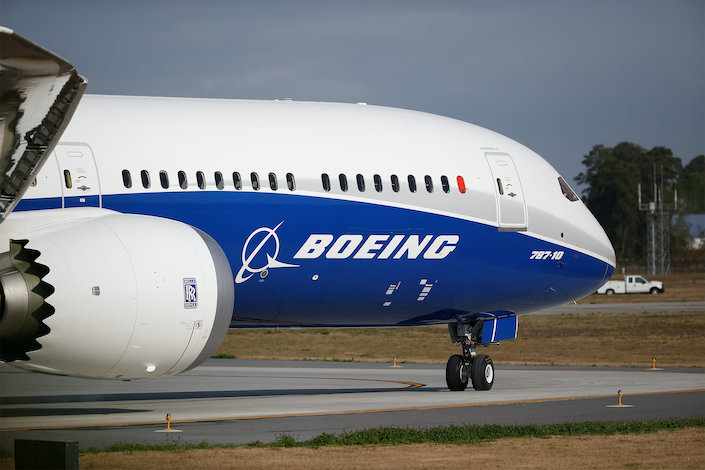China to Sanction Boeing, Lockheed, Raytheon Over Taiwan Arms Sales

(Bloomberg) — China will impose unspecified sanctions on Boeing Co.’s defense unit, Lockheed Martin Corp. and Raytheon Technologies Corp. after the U.S. State Department approved $1.8 billion of arms sales to Taiwan.
The sanctions will be imposed “in order to uphold national interests,” Chinese Foreign Ministry spokesman Zhao Lijian told reporters Monday in Beijing.
The State Department cleared the sale of new weapons to Taiwan last week and submitted the package to Congress for final review. Those deals along with an earlier one involving Lockheed F-16 fighters are taking place amid rising tension between the superpowers ahead of the American election next week.
The new package includes 135 SLAM extended-range land attack missiles from Boeing, Himars mobile artillery rocket systems from Lockheed, and Raytheon surveillance and reconnaissance sensors to be mounted on aircraft.
Boeing shares fell 2.5% to $163.21 at 9:34 a.m. in New York amid broad market declines. The stock dropped almost 50% this year through Oct. 23. Lockheed slipped 1.7% to $367.89 Monday morning, while Raytheon declined 2.1% to $61.25.
Boeing’s 50-year relationship with China in aviation has helped the country’s “safe, efficient and profitable aviation system to keep pace with the country’s rapid economic growth,” the company said by email. In addition to making military hardware, Boeing sells civilian aircraft such as the 787 Dreamliner and 737 Max to Chinese airlines.
“It’s been a partnership with long-term benefits and one that Boeing remains committed to,” Boeing said.
One China Principle
Lockheed Martin said foreign military sales are government-to-government transactions. It works closely with U.S. authorities, and its presence in China is limited, it said in an email.
“We do business with more than 70 nations around the world, and all of our international sales are strictly regulated by the U.S. government,” the Bethesda, Maryland-based defense contractor said.
Representatives from Raytheon didn’t immediately comment.
In August, the U.S. completed the sale to Taiwan of 66 new-model F-16 Block 70 aircraft from Lockheed. Zhao, the Chinese Foreign Ministry spokesman, condemned it at the time, saying it violated the One China principle, interferes in China’s internal affairs and will have a “major impact” on U.S.-China relations.
In July, China — which considers Taiwan part of its territory and resists any recognition of its de facto independence — announced sanctions on Lockheed Martin for a previous arms sale to the island.
Taiwan will continue to urge the U.S. to fulfill its security pledge and sell it weapons for defense, Taiwan’s Foreign Ministry spokeswoman Joanne Ou said in a statement delivered by text.
Sales Limits
U.S. arms manufacturers face strict limitations on what kind of business they can do with countries deemed by Washington to be strategic rivals, such as China. Lockheed generated 9.7% of its revenue in the Asia-Pacific region last year, according to data compiled by Bloomberg, though that’s not broken down by individual countries.
China previously threatened to sanction U.S. companies, including General Dynamics Corp. and Honeywell International Inc., on numerous occasions over arms sales to Taiwan. It also warned it could blacklist FedEx Corp., and Ford Motor Co.’s main joint venture partner in China was fined 162.8 million yuan ($24.3 million) last year, days after the U.S. put a ban on doing business with Huawei Technologies Co.
While China has often invoked the threat of putting U.S. companies on a blacklist — or list of “unreliable entities” — in response to various actions by U.S. President Donald Trump’s administration over the past year, it has yet to name any, at least publicly.
Download our app to receive breaking news alerts and read the news on the go.





